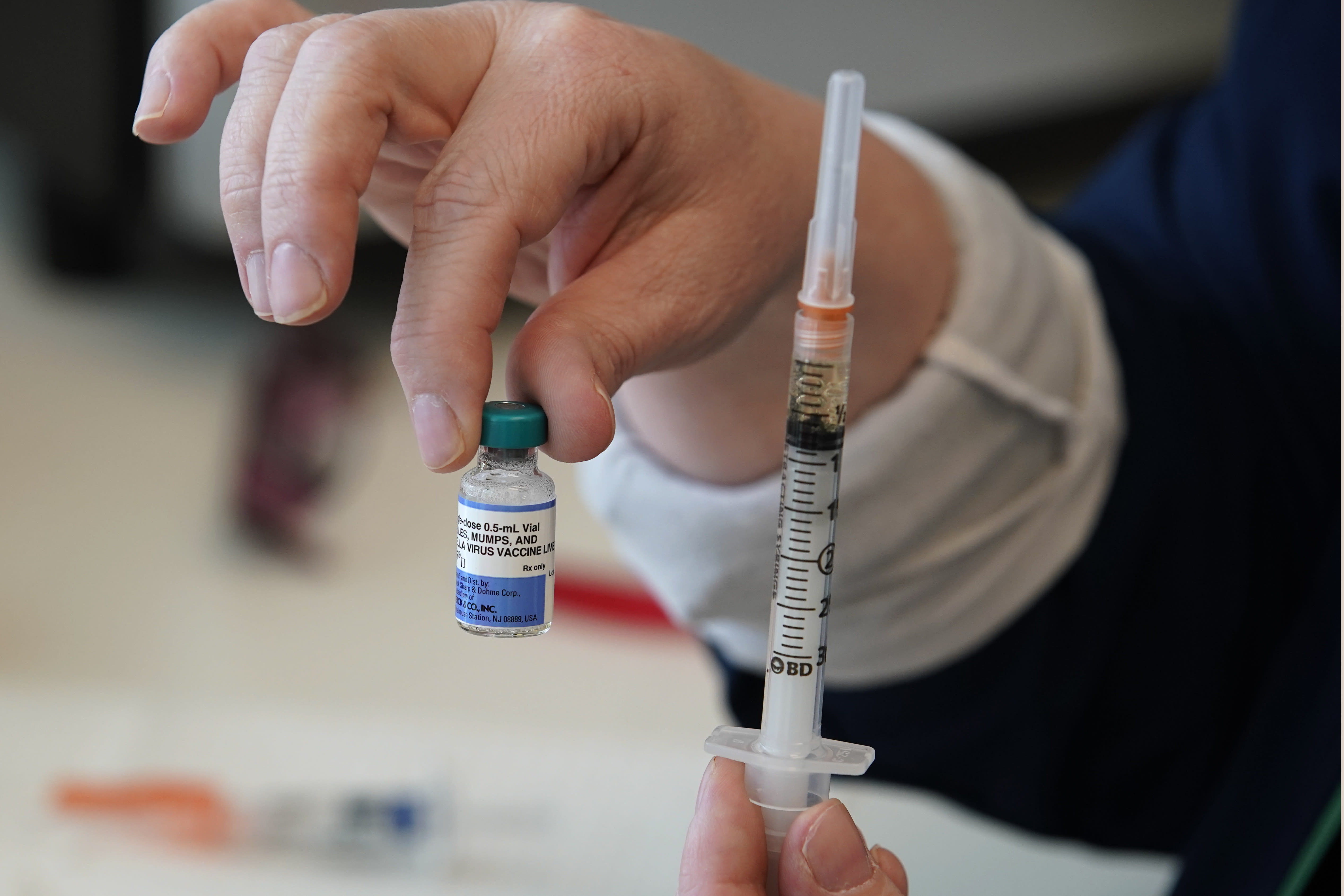A nurse holds up a one dose bottle and a prepared syringe of measles, mumps and rubella virus vaccine made by Merck at the Utah County Health Department in Provo, Utah.
George Frey | Getty Images
Pharmaceutical giant Merck on Friday beat Wall Street expectations in the second quarter and raised its overall earnings guidance for the year, saying the worst of the coronavirus pandemic is behind it.
The company, which is racing to develop two vaccines as well as a treatment to fight Covid-19, told investors the “majority of the negative impact” hit its earnings during the quarter. It expects a gradual recovery through the third quarter “with a return to normal operating levels in the fourth quarter.”
“As expected, social distancing measures in many regions negatively impacted second-quarter volumes for many of our products,” CEO Ken Frazier said during a conference call discussing the company’s second-quarter earnings. “However, customer access to care is steadily improving, including in our portfolio of vaccines, which was hit particularly hard this quarter.”
The company’s shares rose by nearly 3% in premarket trading. The Covid-19 pandemic cost Merck $1.6 billion in lost revenue during the quarter as fewer people visited doctor’s offices. The company estimated the total revenue impact of the pandemic at $1.95 billion for 2020, slightly less than previous projections.
Sales of its blockbuster cancer drug Keytruda helped offset an 8% decline in revenue to $10.87 billion during the three months ended June 30 from $11.76 billion from a year earlier.
The New Jersey-based company previously warned that the coronavirus would hit its 2020 sales as the pandemic prevented people from going to doctor’s offices in the second quarter. Two-thirds of the company’s products, including Keytruda, are administered by physicians, Chief Financial Officer Robert Davis said during the company’s first-quarter conference call.
Keytruda’s sales jumped 29% to $3.9 billion from $2.36 billion the year before.
Here’s how the company performed versus what Wall Street expected, based on average analysts estimates compiled by Refinitiv.
- Adjusted EPS: $1.37 versus $1.04 expected.
- Revenue: $10.87 billion versus $10.39 billion expected.
Merck said it now expects full-year adjusted profit of $5.63 to $5.78 per share, compared with its prior forecast of $5.17 to $5.37 per share. Net income attributable to shareholders rose to $3 billion, or $1.18 per share, in the quarter, from $2.67 billion, or $1.03 per share, a year earlier.
Merck is among several companies working to develop Covid-19 vaccines and therapeutics, although the company jumped into the race later than many others, including pharmaceutical giants Pfizer, Johnson & Johnson and Moderna.
Merck acquired Austrian vaccine maker Themis Bioscience, which is developing a Covid-19 vaccine with Institut Pasteur and the University of Pittsburgh. The company said Friday clinical trials for the candidate are scheduled to begin in the third quarter.
It is also collaborating with scientific research nonprofit IAVI on a separate Covid vaccine. Merck said Friday clinical trials for this vaccine candidate will begin later this year.
“Both vaccine candidates will soon enter the clinic and we have begun investing to facilitate our ability to manufacture hundreds of millions of doses,” Frazier said during the call.
The company also announced a collaboration with Ridgeback Biotherapeutics to develop an oral antiviral therapeutic against Covid.
Julie Gerberding, chief patient officer for Merck, told Congress on July 21 that the company would not sell its vaccines at cost if approved by regulators, although she added that the company was “a long way from understanding the cost-basis.” Merck has yet to begin human trials for its vaccine candidates, well behind some competitors like Moderna and Pfizer, which began their late-stage human trials on Monday.
